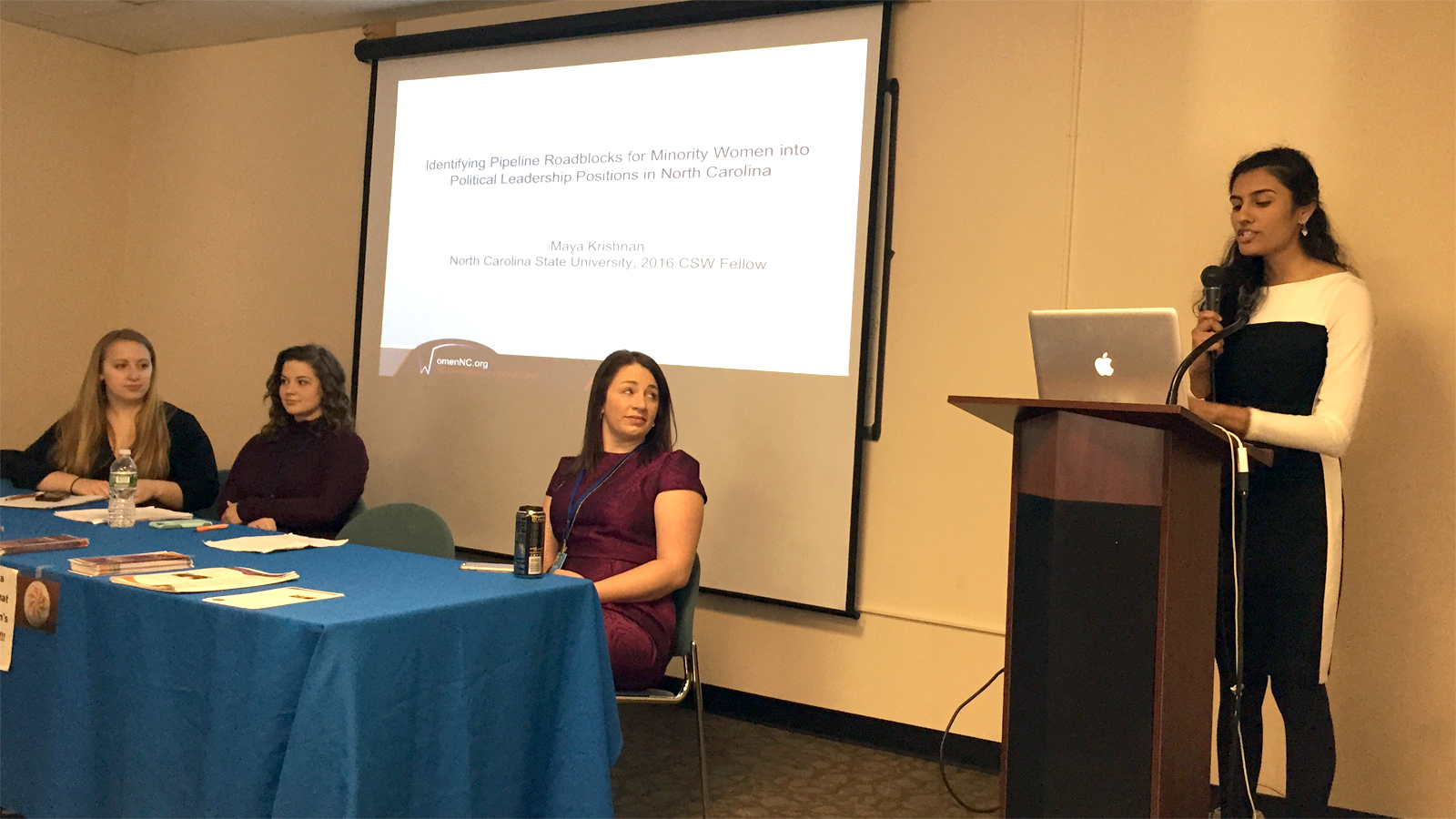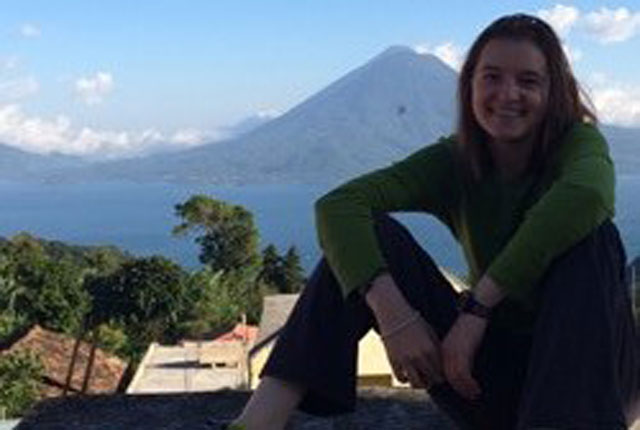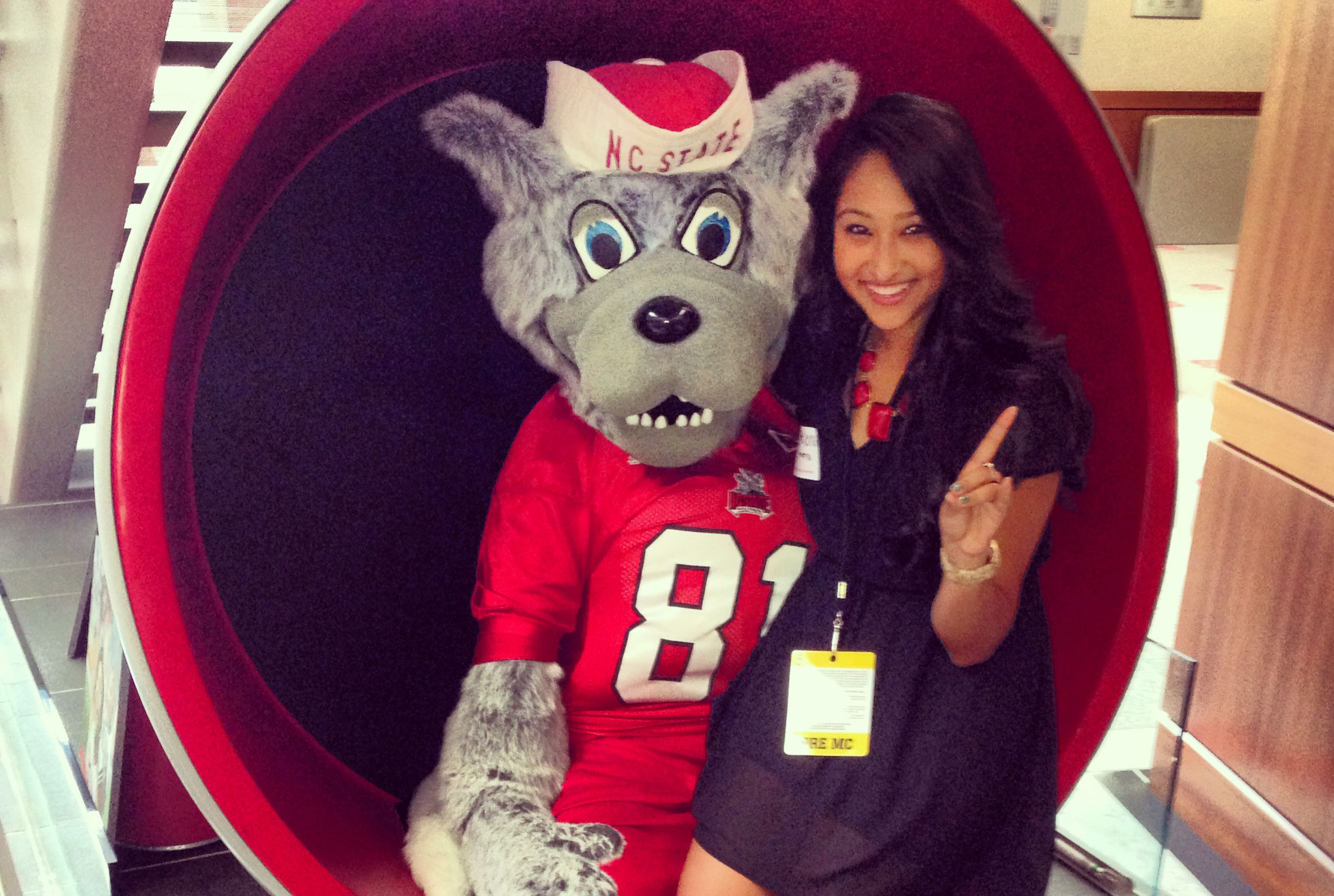Meet CHASS Distinguished Alumna and ExxonMobil Exec Susan Carter

It was a night course about the Soviet Union that convinced Susan Carter to apply to NC State and major in political science. Just back from the Coast Guard Academy, she was trying to figure out her future. She decided it lay at NC State. “It was the best decision I ever made,” said Carter, who graduated in 1981 and was recently recognized as the 2010 CHASS Distinguished Alumna.
After graduating from NC State, Carter went on to earn her master’s degree in Middle East Studies, International Economics and Arabic from The John Hopkins School of Advanced International Studies. Following graduation, she worked as a journalist in the Persian Gulf and in 1990 joined ExxonMobil, where she now serves as the senior director of federal relations.
“I’ve always been interested in U.S. foreign policy,” said Carter. “We lived in Australia when I was six and seven. My parents had friends from other countries that they met through the U.S. military. When I was eight years old, my father went to Vietnam. I was always conscious that U.S. foreign policy and events that happened outside the United States had a profound impact at home.”
Today she’s supporting CHASS students learning the very same thing—both by serving on the college’s School of Public and International Affairs (SPIA) advisory board and through the creation of the Susan Carter Scholarship. Her donations are tripled by ExxonMobil.
“One of State’s great strengths is that it attracts students from around the world,” said Carter. “My interest in the Middle East began with the many prominent Palestinian students I met here. They showed me the other side of the Arab-Israeli conflict and awakened an interest in the region that ultimately led to my Fulbright in Syria, my three years in Bahrain, and to being hired by ExxonMobil.”
Currently, Carter manages contacts and advocacy with the executive branch regarding energy and business issues, as well as guiding ExxonMobil on Canadian relations. But one of her favorite responsibilities has been to advocate for human rights and health in other countries.
“I helped manage our worldwide strategic community investment programs. We created an initiative to build leadership skills and economic opportunity for women in developing countries,” Carter explained. “Why would we invest in women in developing countries? Because investment in women yields incredible dividends for entire communities and countries. We live and work in these countries and their economic and social progress affect us too. ExxonMobil has touched and changed a lot of women’s lives through this initiative, and the program continues to grow and flourish.”
At NC State’s distinguished alumni awards dinner in January, Carter reflected on how she became a global citizen. “I had many inspirational professors and advisors, but none more so than Joe Mastro.” Mastro was the instructor of that evening course about the Soviet Union—the one that convinced Carter that NC State was where she needed to be.
Carter also credits her parents: Bob and Katie Carter. “They have enthusiastically supported me at every step through my life. But just as important, they participated in my experiences here at NC State. As a result, my parents and I have been able to grow together throughout our lives.”
Carter hopes the scholarship in her name and the guidance she gives to SPIA and the Women’s Foreign Policy Group will give current students encouragement and support similar to what she received during her days at State.
“I had a lot of mentors and supporters along the way who helped me in many different ways,” Carter said. “I in turn want to help the next generation.”
We asked; Q&A with Susan Carter
Q. You’ve worked in parts of the world most Americans only read about. What’s the biggest misconception we have about the Middle East?
A. That every country is the same and every person thinks the same way. It is a diverse region; its people hold all types of views.
Q. You were a journalist in the Persian Gulf before you joined ExxonMobil’s public affairs department. What was that like?
A. It was a grand adventure. I lived in Bahrain, a very comfortable, open country to live in at the time. I had the great fortune to travel to several countries in my work—Saudi Arabia, Oman, the United Arab Emirates, Yemen—and to spend a week aboard U.S. naval vessels that were escorting oil tankers in and out of the Arabian Gulf during the Iran-Iraq war. My time in the Gulf and my year in Syria just prior to that were incredible growth periods. Living in another culture really stretches you, spiritually, mentally and professionally.
Q. You’ve been with ExxonMobil in some capacity since 1990. How has the industry changed in 20 years?
A. Technology developments have enabled us to find and produce oil and gas economically and with a smaller environmental footprint in new frontiers. In far east Russia, ExxonMobil just drilled the world’s longest extended-reach well. The well pad is on land; we drill down and out 7.67 miles underneath the seafloor to the oil field. That lets us produce oil and gas in an environmentally responsible way, without interacting with the marine environment in one of the most challenging sub-arctic environments in the world. It’s pretty amazing technology, and it’s one of many examples.
Q. Can you tell us something most people won’t know about how we get our oil?
A. One fun fact: Most people in the U.S. think that most of their imported oil comes from the Middle East. Actually, it comes from Canada.
By Christa Gala.
- Categories:


